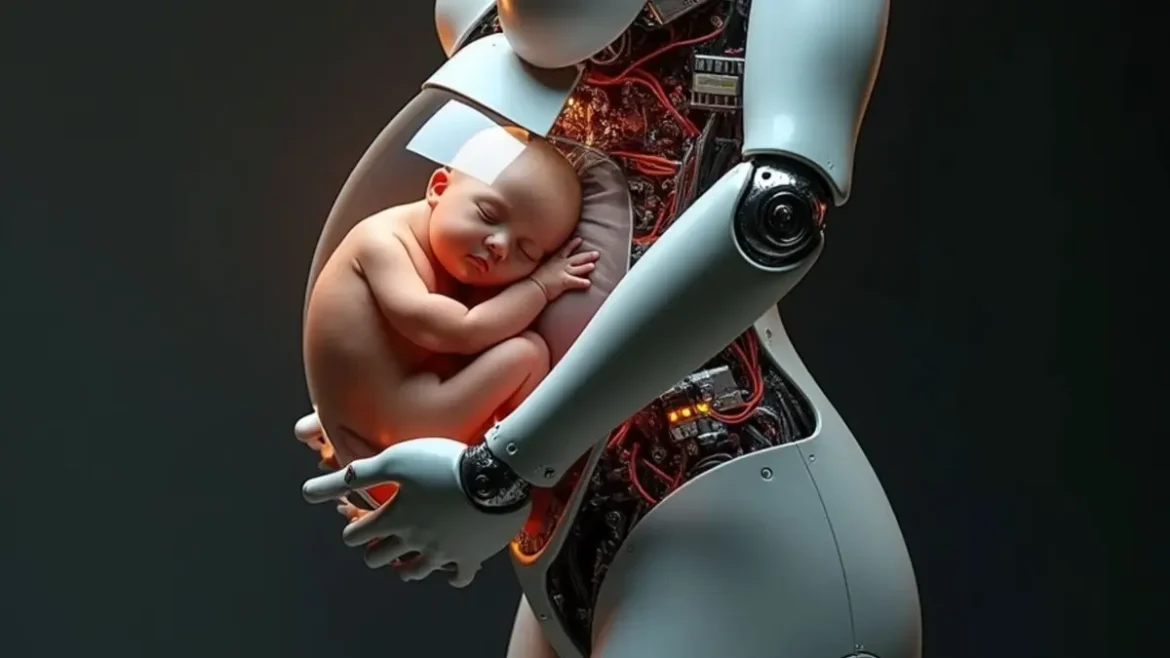A Chinese tech company has announced it is developing the world’s first humanoid robot with an artificial womb—an audacious innovation that could transform pregnancy, infertility treatments, and bioethics as we know them.
Humanoid Robot with Artificial Womb: A Radical Vision
Kaiwa technology, based in Guangzhou, unveiled plans at the 2025 World Robot Conference in Beijing to introduce by 2026 a humanoid “gestation robot” equipped with an artificial womb capable of carrying a fetus through the entire gestational process—from fertilization to birth.
Founder Dr. Zhang Qifeng—affiliated with Nanyang Technological University in Singapore—stressed that the device is more than a high-end incubator: it is a life-sized humanoid robot with artificial amniotic fluid and a nutrient-delivery tube embedded in its abdomen.
The underlying artificial-womb technology, already mature in laboratory settings, now needs integration into robotic form to facilitate real human–robot interaction during pregnancy. If successful, the prototype is expected to debut within a year with a price tag under 100,000 yuan—roughly USD 13,900–14,000.
Ethical and Legal Shockwaves
The project has ignited intense discussion. Proponents view it as a game-changing reproductive option for infertile individuals or those who wish to avoid biological pregnancy. The cost is significantly lower than conventional surrogacy in countries like the U.S., which may reach USD 100,000-200,000.
Yet critics warn of powerful ethical and legal dilemmas—including questions about parenthood, fetal rights, psychological impacts, and society’s changing view of reproduction. In response, Dr. Zhang has already initiated policy discussions with authorities in Guangdong Province to explore regulatory frameworks.
GEAIR: Artificial Intelligence Meets Agriculture
At the same conference, Chinese researchers introduced GEAIR—the world’s first AI-powered breeding robot. Developed by the Institute of Genetics and Developmental Biology (IGDB) of the Chinese Academy of Sciences, this robot autonomously performs hybrid pollination within greenhouses, using AI and gene-editing to dramatically increase efficiency in crop breeding.
Equipped with visual recognition and precision robotics, GEAIR navigates among flowers to perform cross-pollination with remarkable accuracy—particularly effective in producing male-sterile soybean hybrids and accelerating breeding via methods like “speed breeding” and “de novo domestication”. Researchers cite GEAIR as a key step toward precision agriculture and a closed-loop, intelligent breeding system.
What This Means for the Future
Together, these announcements signal China’s ambition to integrate AI, biotechnology, and robotics in ways that redefine human experiences—from conceiving life to cultivating food.
If realized, the pregnancy humanoid robot could offer unprecedented reproductive autonomy, but also raise profound ethical and social questions. Meanwhile, GEAIR points toward a future where agriculture is increasingly automated, sustainable, and climate-resilient.
From: ISNA


